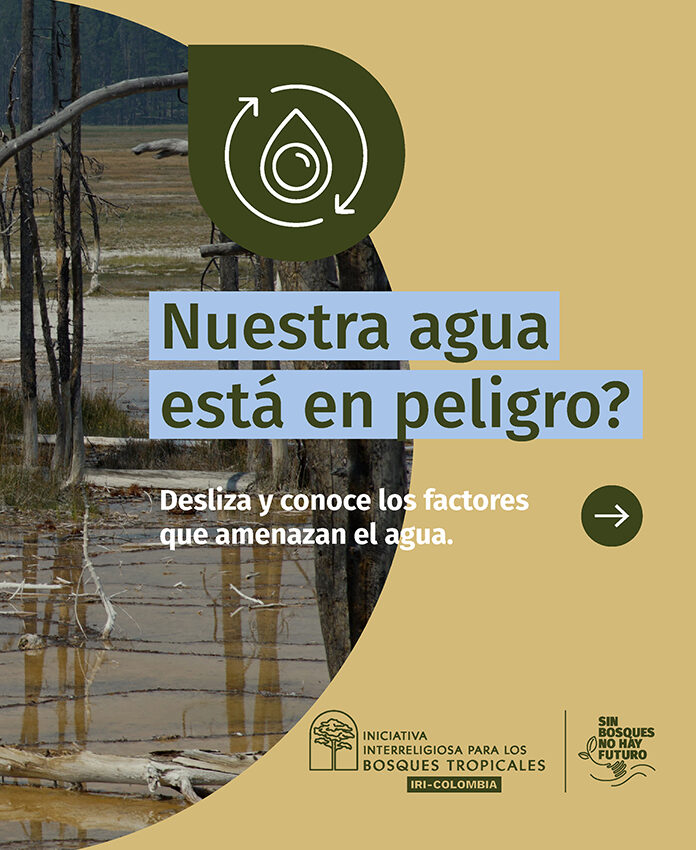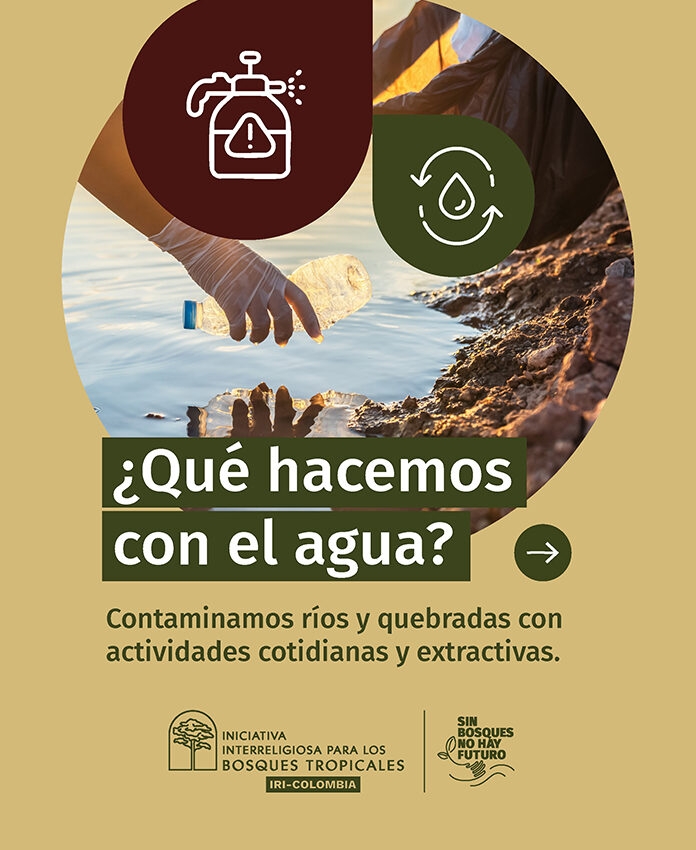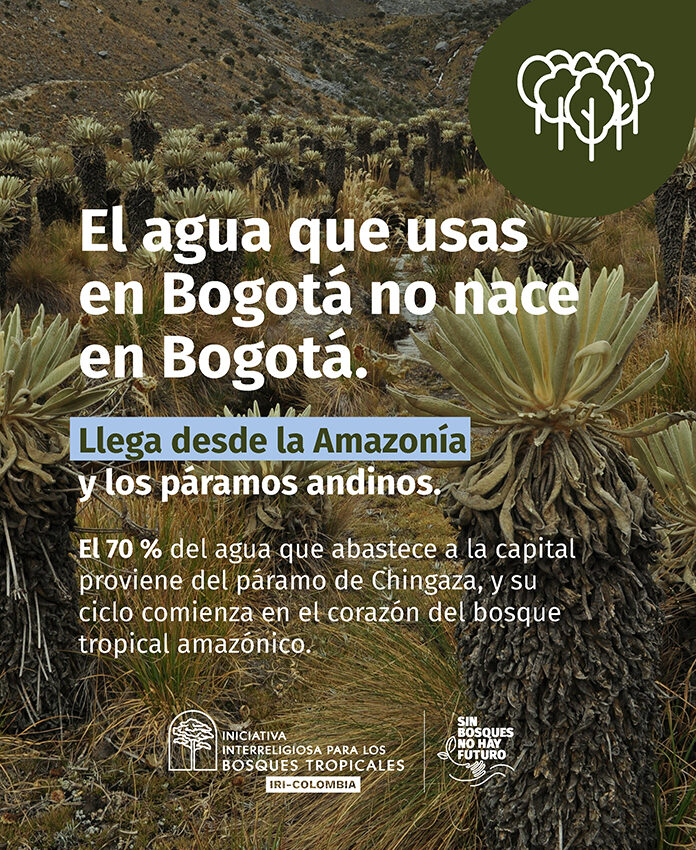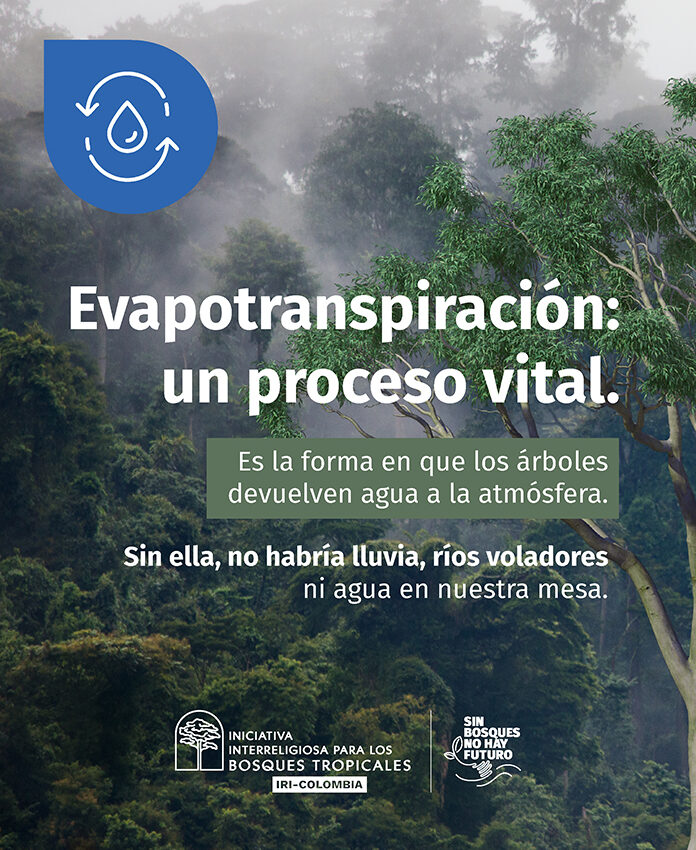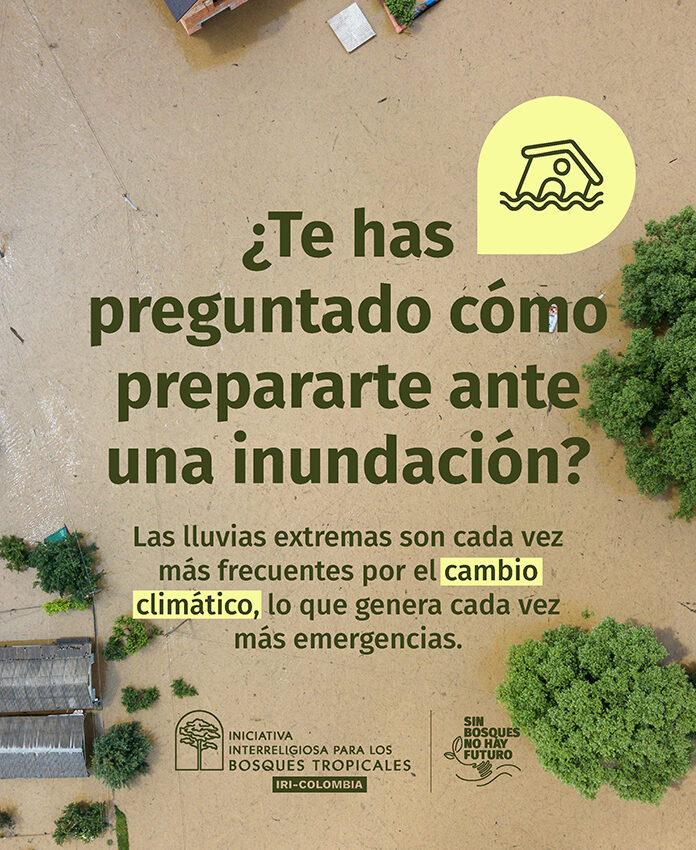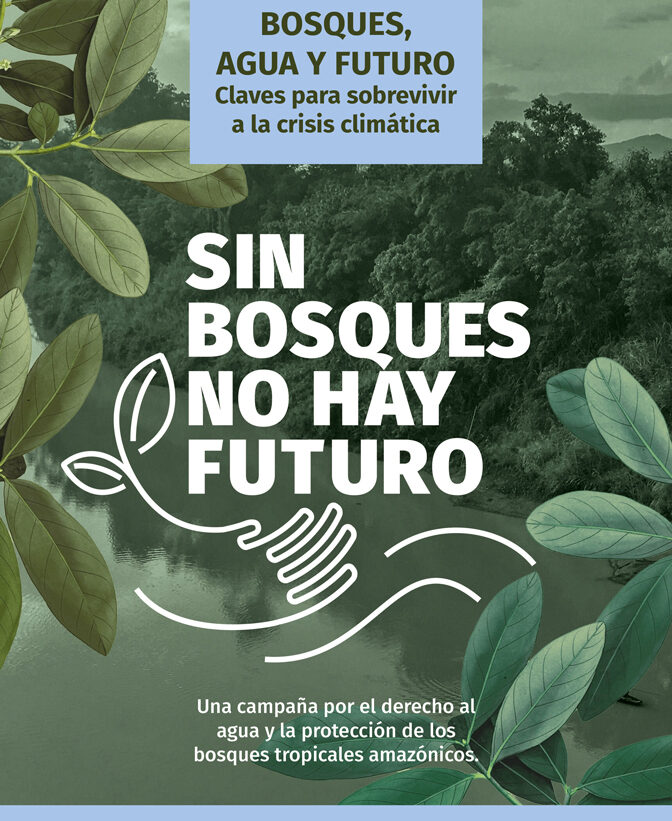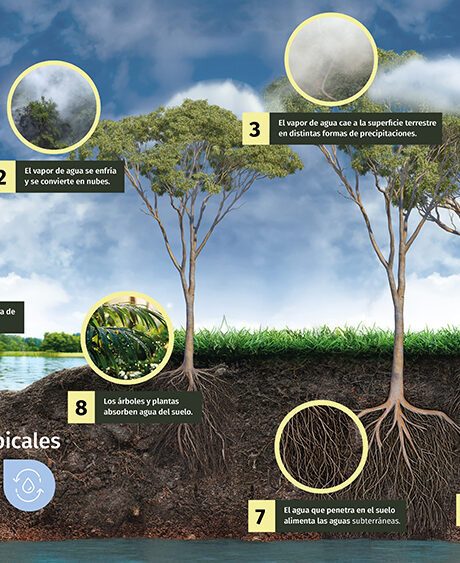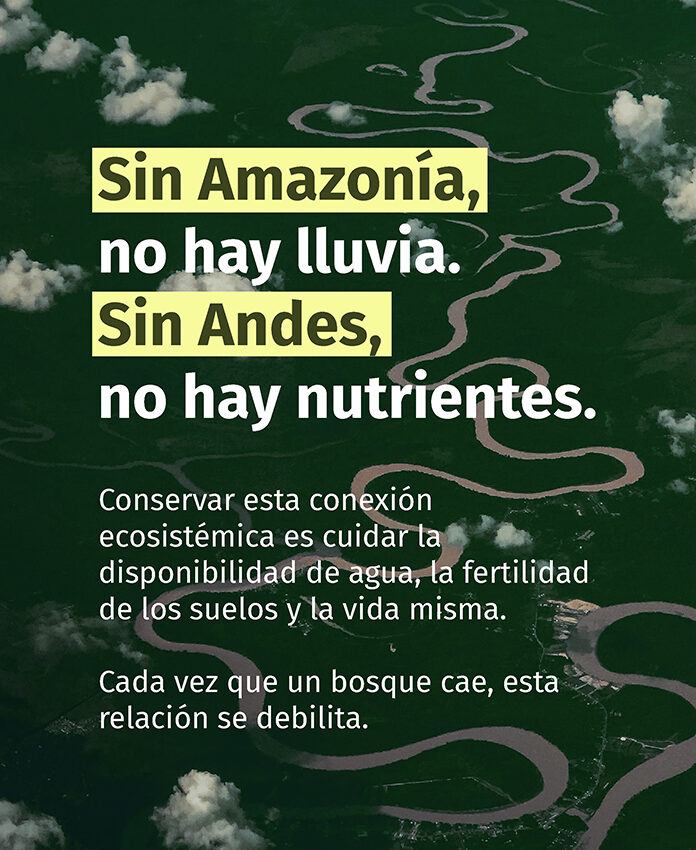IRI-Colombia and 15 allied organizations call for recognizing the essential role of tropical forests in the country’s water and climate security, and for uniting faith, conscience and action to protect the Amazon and guarantee water for future generations.
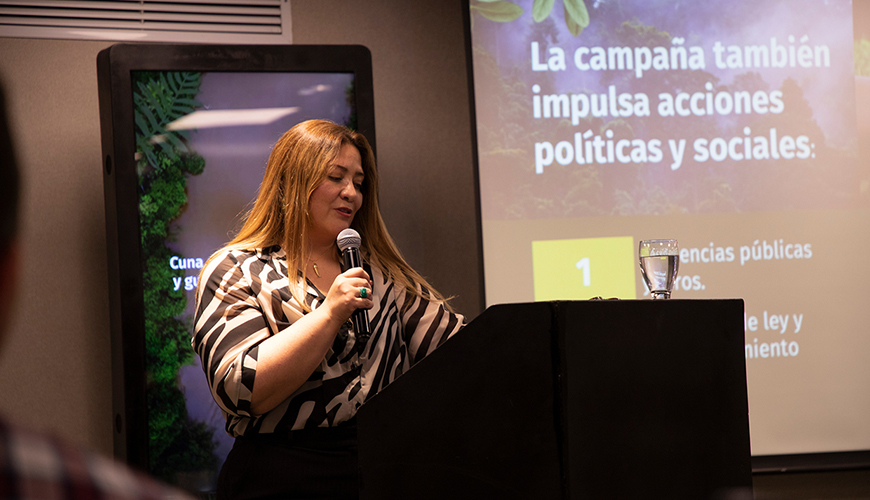
“Today, 2 billion people live with water scarcity and 90% of natural disasters are related to it. Water is an essential element for life and it is life that is at risk if we do not act to protect it,” said Diana Cristina Carvajal during the launch of the national campaign “Without forests there is no future”, on August 26 in the country’s capital.
With these words, the communications officer of IRI-Colombia began the presentation of this ambitious initiative, which seeks to expand awareness of the importance of tropical forests, their essential role in the water cycle and the urgent need to protect them as a crucial strategy to guarantee water and prevent climate emergencies related to this vital liquid.
The event, held at the Radisson Merotel Hotel, was attended by more than forty religious leaders and representatives of faith-based organizations, and a delegation of thirty journalists from media outlets in the Amazon and Bogotá.
One of the main objectives of “Without Forests There is No Future,” says the communicator, is to strengthen the national movement for the protection of Amazonian tropical forests that the Interreligious Initiative for Tropical Forests has been consolidating for seven years, through support and alliance with different organizations.
Currently, the campaign has the support of 15 organizations: the Pan-Amazonian Ecclesial Network (REPAM Colombia), Pastoral Social Caritas Colombia, the Interreligious Council of Colombia, the Evangelical Confederation of Colombia, the Central Baptist Church, the Syrian Orthodox Church of Antioch, Interchurch Dialogue for Peace (DiPaz Colombia) the Reformed University Corporation, the Regional School of Environmental Leadership, the Government of Putumayo, the Secretariat of Environment and Sustainable Development of Putumayo, the Colombian Association of Geographers (ACOGE), the Colombian Association of Environmental and Sanitary Engineers (ACODAL), the Colombia Stereo radio station and the community newspaper accion notes.
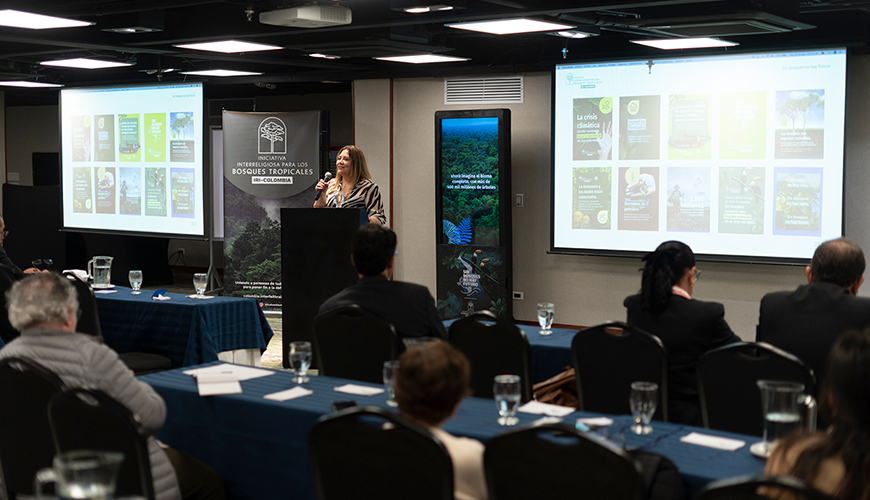 Open without forests there is no future: a commitment to life
Open without forests there is no future: a commitment to life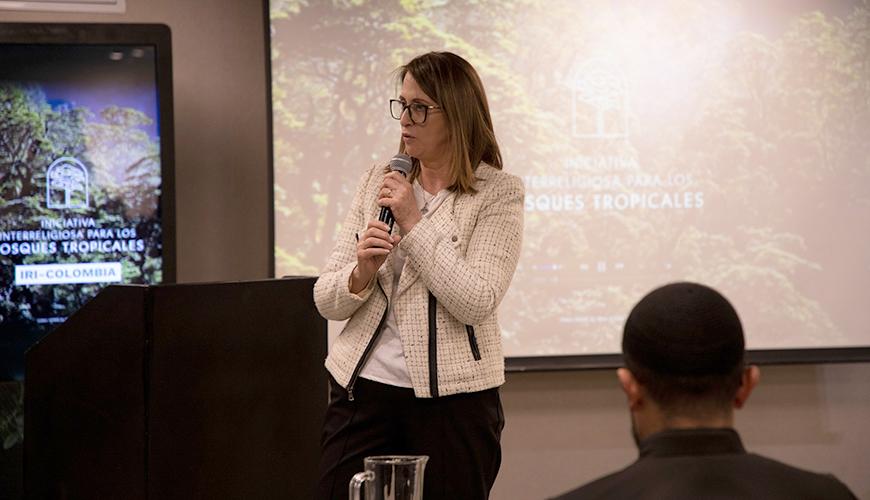 Blanca Lucía Echeverry, national coordinator of IRI-Colombia
Blanca Lucía Echeverry, national coordinator of IRI-Colombia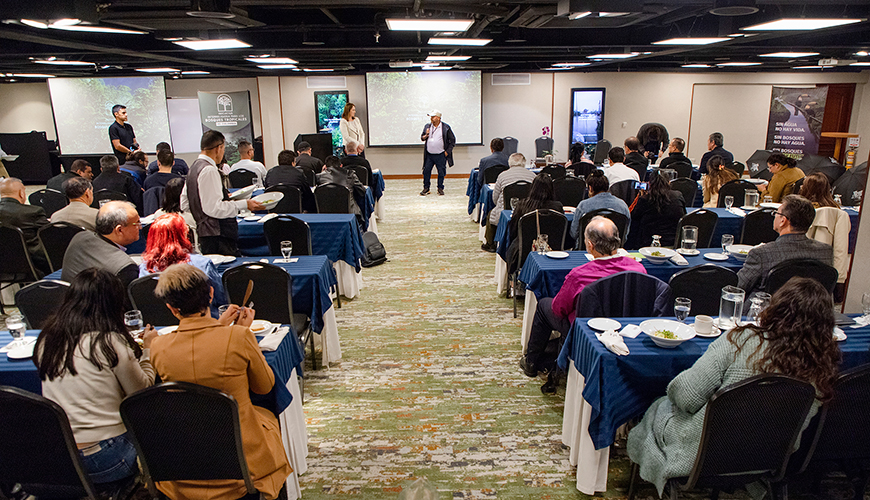 46 local chapters of IRI-Colombia located in the Amazon will help ensure that "Without forests there is no future
46 local chapters of IRI-Colombia located in the Amazon will help ensure that "Without forests there is no future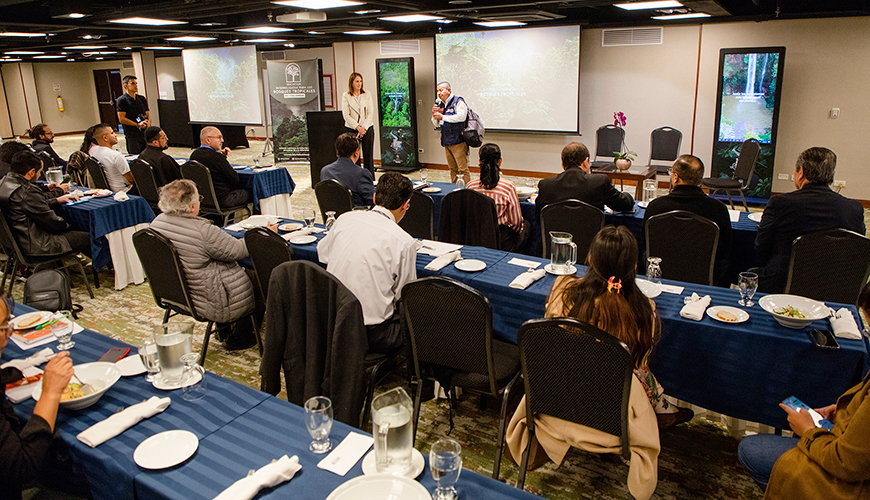 46 local chapters of IRI-Colombia located in the Amazon will help ensure that "Without forests there is no future
46 local chapters of IRI-Colombia located in the Amazon will help ensure that "Without forests there is no future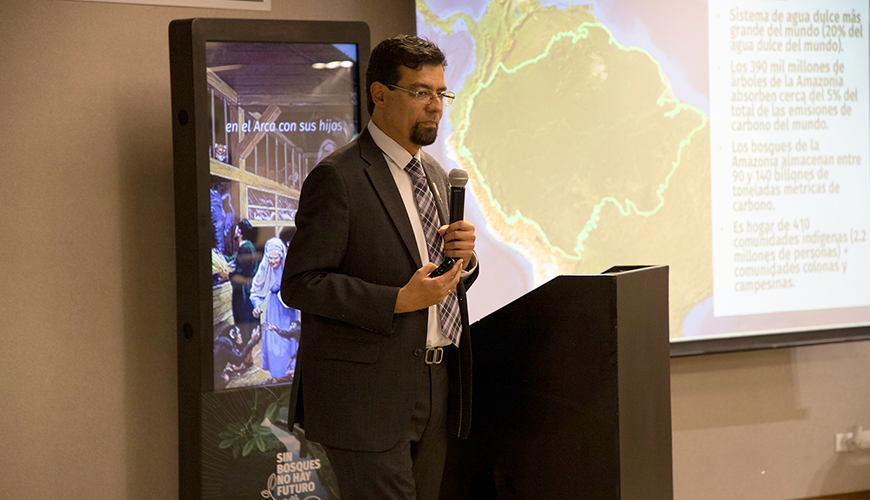 Javier Eduardo Mendoza, guest speaker
Javier Eduardo Mendoza, guest speaker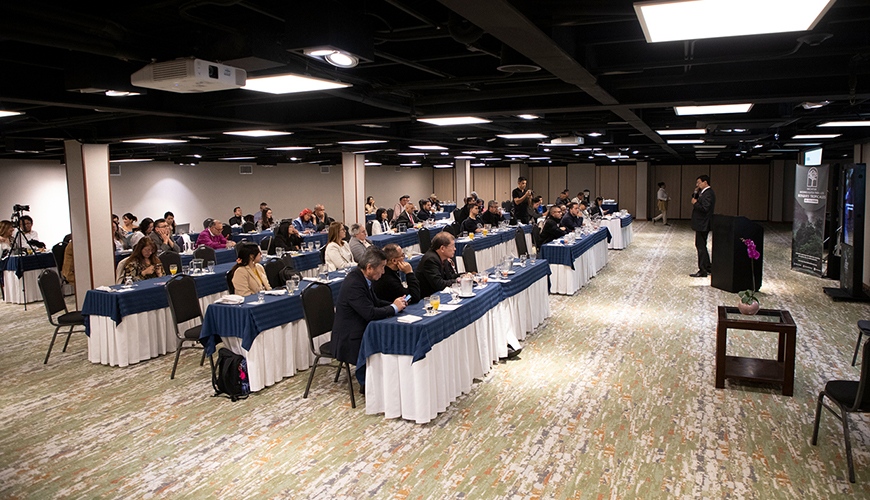 Javier Eduardo Mendoza, guest speaker
Javier Eduardo Mendoza, guest speaker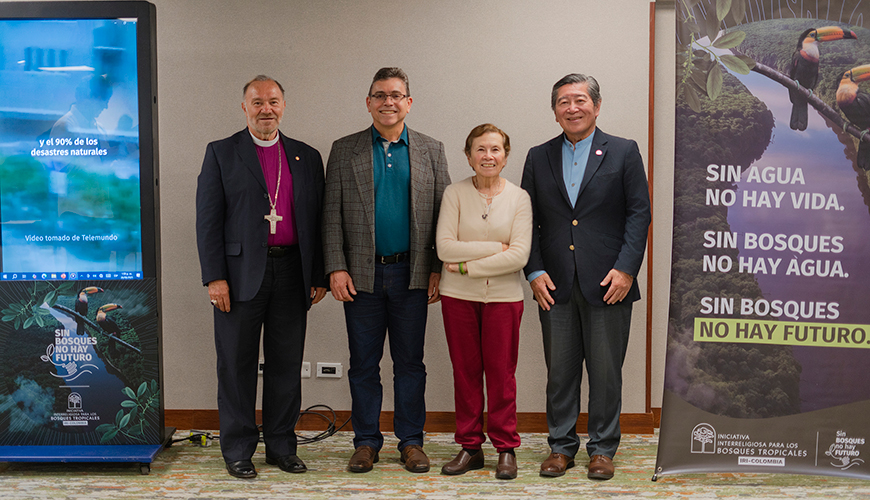 Bishop Francisco Duque, Agnaldo Pereira Gomez, of IRI-Brazil; Laura Vargas, director of IRI-Peru; and Martin Shikiya of the World Council of Churches.
Bishop Francisco Duque, Agnaldo Pereira Gomez, of IRI-Brazil; Laura Vargas, director of IRI-Peru; and Martin Shikiya of the World Council of Churches.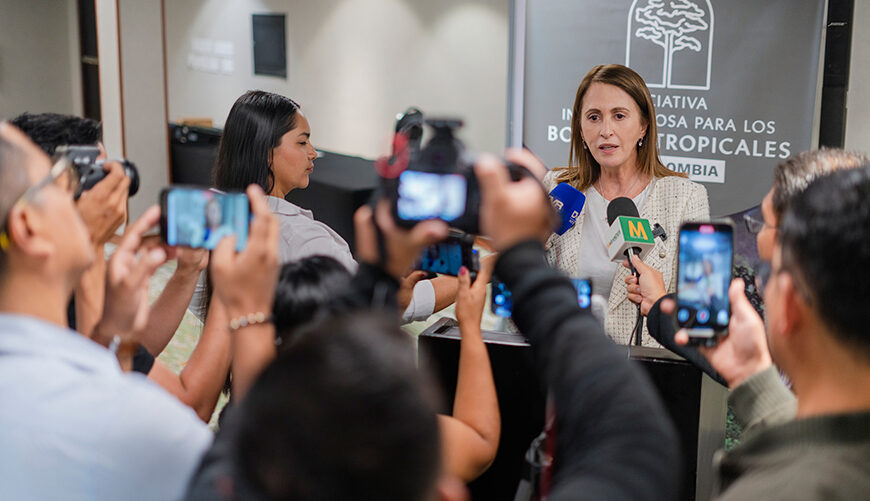 Blanca Lucía Echeverry
Blanca Lucía Echeverry Diana Cristina Carvajal, Communications Officer of IRI-Colombia
Diana Cristina Carvajal, Communications Officer of IRI-Colombia
Water crisis in the country
Extreme droughts, rationing, forest fires, floods, landslides and avalanches have been the order of the day in our country for the last five years. According to data provided by the National Unit for Disaster Risk Management (UNGRD) in its annual inventories, from 2020 to 2024 there were more than 21,700 climate emergencies in the country related to water scarcity or excess.
According to Diana Cristina Carvajal, the dizzying growth of the population, the acceleration of urbanization and the water needs of the agricultural, industrial and electricity sectors, have alarmingly increased the demand for water, putting water security at risk for millions of people in the world.
“This, added to the increase in temperatures due to climate change, confronts us with a critical panorama that threatens the well-being of humanity,” he stressed.
Awareness + action
“Without forests there is no future” was created with the aim of making visible the direct relationship between the state of the Amazonian tropical forests and the health and well-being of people not only in the Amazon but also in the country and the region, in general.
The campaign articulates three essential components: communications, political advocacy and work in the territory. This was explained by the communicator and master’s degree in Communication, Journalism and Humanities, who referred to the strategies of this initiative to reach not only the Amazonian population, but the entire country. “Without forests there is no future” seeks to raise awareness at the national level about the importance of Amazonian forests for all of Colombia. “We need the rest of the country to understand that the Amazon also has to do with us. What happens there affects us directly,” he said.
The communications component included the development of a series of products such as a booklet and graphic, sound and audiovisual pieces, which will allow these messages to be effectively transmitted.
The booklet, of the same name as the campaign, provides a panoramic look at the different aspects of the water crisis and its connection with tropical forests. It addresses the right to water; the impact of climate change on the availability of water and the occurrence of extreme weather events; the relationship between forests and the water cycle, and how they help guarantee water and prevent climate emergencies, among other topics.
Likewise, “Without forests there is no future” includes a series of radio spots that have been broadcast for two months on nine radio stations in the Colombian Amazon and a series of key messages that were disseminated through the social networks of the Initiative and allied organizations throughout a month.
“All these activities aim to translate the message of the campaign into institutional commitments, public policies and structural transformations in defense of tropical forests and the peoples who inhabit them,” said Blanca Lucía Echeverry, national coordinator of IRI-Colombia, about the other two components of the campaign: political advocacy and work in the territory through the local chapters of the Initiative.
That is why, “Without forests there is no future” will function as a public advocacy tool that will reinforce the political, ethical and territorial work of IRI-Colombia and will be articulated with concrete actions of political dialogue, citizen training and legislative advocacy.
For next year, the Initiative plans to carry out actions ranging from the promotion of public hearings, forums and spaces for dialogue with local, regional and national authorities; to the articulation with control agencies – the Attorney General’s Office, the Ombudsman’s Office and the Comptroller’s Office – to guarantee compliance with the State’s environmental commitments.
From faith to action
The 46 local chapters of IRI-Colombia located in the Amazon will help ensure that “Without forests there is no future” is not only a national narrative, but a living force in the Amazonian territories, driven by faith, environmental awareness and collective action, said the coordinator of IRI-Colombia.
“Conservation is also an act of faith and hope. There has to be a tomorrow and a future that we will build every day with our actions. So that conservation has a new meaning with new elements: faith and hope, of course, but also emotional and physical restoration,” said biologist and Master of Science, Javier Eduardo Mendoza, guest speaker at the launch, who gave the talk “Beyond the trees: a sacred pact for Amazonian conservation.”
During his presentation, the expert in biodiversity conservation, climate change, sustainable development and territorial planning referred to the various physical, biological and ecological qualities of the Amazon forest, which allow it to offer vital ecosystem services for humanity, such as the production of oxygen, water purification and the creation of immense flying rivers that supply water to almost the entire South American subcontinent.
“Sometimes we have stopped to think about exactly what a forest is and what it is for. These are key questions, because if we don’t know the answers, we won’t be able to do anything really assertive to protect it,” he said.
According to the expert, the forest is not a machine that performs a precise, synchronized job, with the same result always. On the contrary, it is a living and intelligent system, which has the ability to learn, is complex, adaptive, and functions as a neural network, where its fungi and roots can transmit energy and information over great distances. “They are living species talking and interacting with each other to maintain increasingly broader, larger and more complex systems,” he said.
Javier Eduardo Mendoza also reflected on the spiritual dimension that is inscribed in each of the ecological dynamics of the forest and the crucial role that religious leaders are called to play in the protection of the Amazon biome.
In his words, each of these qualities and processes—micros and macros—are a clue to finding God and a way to show people how close God is to us.
“Without forests there is no future” hopes to reach more than two million people in the Amazon and many more throughout Colombia. For this reason, in addition to officially presenting the campaign, he invited the different churches, organizations and media to join this initiative.
“Faith is movement, it is action, it is hope. We want to invite you from the bottom of our hearts to be very active. Those who do scientific research, those who create public policies, projects and country strategies, need you, your convening power and your power of persuasion, so that change can happen,” concluded Javier Eduardo Mendoza.

